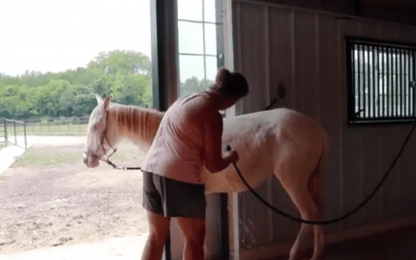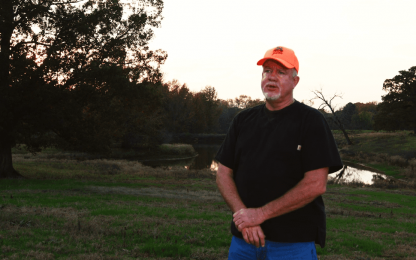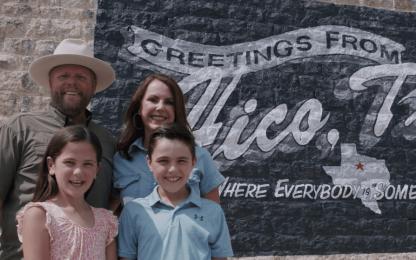Putting Down Roots
Gideon “Deon” Dekkers Sr. and his sons, Andre and Deon Jr., own and operate Twin Lakes Nursery near Canton, Texas. They specialize in growing large, mature trees for the commercial landscaping industry.
From 13-foot hollies to 30-foot oaks — some up to 25 years old — Twin Lakes provides contractors with towering trees that look like they’ve always been a part of the landscape. They’ve even sold trees to New York City’s Rockefeller Center.
And it’s the way the family grows the trees that sets Twin Lakes apart from other nurseries — in gigantic wooden boxes and large plastic containers.
“Our trees are container-grown — not field-grown and not balled and burlapped — because containers are healthier for them. It’s better for the root system, and the tree gets a better start when it’s installed,” Gideon said.
South African Roots
Container culture is a practice Gideon knew from his native South Africa. For over 15 years, he farmed and operated construction and landscaping businesses. Then, in 1985, he immigrated to Texas, jobless but full of ambition.
“I had no idea how I’d support my family,” he said. “I didn’t even have a credit card.”
But he possessed a strong work ethic and good business instincts. Soon, he was winning construction and landscaping contracts in the Houston and Dallas areas. That’s when he saw an opportunity to provide mature trees for commercial landscapers and landscape architects.
“There was nobody in Texas providing that kind of tree,” he said. “When I came here from South Africa and saw nurseries digging trees out of the ground, it just didn’t make sense to me.”
Benefits of Container-Grown Trees
The tree’s special treatment starts with the right container — a large wooden box built by the nursery’s own staff, or a slotted plastic pot that’s vertically corrugated to guide the root tips to air-pruning slots. Both types of containers discourage root circling and encourage denser rooting than burlap wraps, Gideon explained. Wooden boxes are cooler and offer better temperature control than plastic pots.
The Dekkers’ secret ingredient is their planting mix, according to Deon Jr. A heavier organic material than traditional mulch, it provides better moisture retention than porous bark mulch and is compatible with most soils.
Watering is just as important. Workers probe the root balls every day, and spot sprayers connected to the containers maintain ideal moisture levels.
Also supporting the nursery is their lender, Texas Farm Credit, which they discovered when they were looking for an agricultural partner that understood the nursery business.
Good for the Environment
The operation uses the latest and most efficient irrigation practices, while also using the farm’s renewable resources for compost and dry earth potting matter, which is native topsoil mixed with aged pine bark.
“The Dekkers are responsible for adding hundreds of trees to our urban landscapes every year, which in turn are good for wildlife, soil and air,” said Dustin McClendon with Texas Farm Credit. “They’ve contributed so much to the Canton community, and we’re pleased to support their goals.”
As for the future, it’s too early to know if any of Deon and Lorraine’s 10 grandchildren will join the business. For now, the family’s goal is simply “to be the best large-tree supplier in the South.”
“It’s really unbelievable how blessed we are to have this place and this business,” he said. “We couldn’t have accomplished this anywhere but Texas.”
This article was originally published by Texas Farm Credit.



